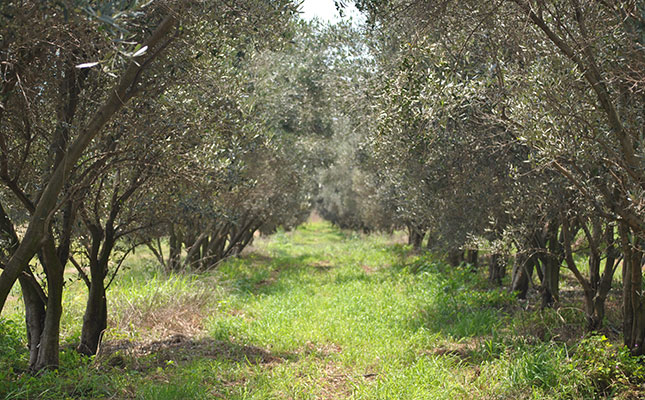
In 2010, the owners of two prominent Stellenbosch wineries found themselves in disagreement over the name of a wine. One of the wineries had inadvertently given a special release wine a name that was very similar to that used by the other winery for one of its special release wines.
READ:Red locusts a threat in Zambia, Zimbabwe
The latter estate brought an application for an interdict in the Western Cape High Court, asking for an order to compel the former winery to destroy all 600 bottles produced under the disputed brand name and interdicting it from producing a similarly named wine in the future. Although all 600 bottles of wine had already been sold by that time, the hearing went ahead. The Cape High Court awarded the interdict, barring the winery from using the name again in future. Leave to appeal
the judgement was granted, however.
By then the parties had run up costs in excess of R1,5 million. Faced with the prospect of the initial judgement being overturned on appeal, the parties lost their appetite for further litigation. The matter was settled with an agreement that both wineries could continue using the name under certain conditions. “There’s no doubt that, had the parties submitted their dispute for mediation, they would have settled their differences years ago on a much better basis and at a fraction of the cost,” says advocate Alan Nelson SC.
Nelson, a trial lawyer by training, has practised as an advocate for 35 years, and as a senior advocate for 20 of these. A relatively new convert to mediation, he has since become an internationally accredited mediator. He is also a wine farmer and owner of Nelson Wine Estate near Paarl.
So convinced is Nelson of the effectiveness of mediation, that he insists that his clients try it before litigation.
In addition, the cost of mediation is a fraction of litigation, rarely exceeding R20 000. “This means that the battle between the two wineries could have been resolved in one or two days at a mere 1,3% of what the litigation ended up costing the parties.”
Getting to the heart of it
Unlike litigation, which is rights-based, mediation addresses the real concerns of the parties, thereby uncovering possible solutions based on the actual interests of those involved. According to Nelson, these include options that are beyond the court’s powers. With the guidance of a skilled mediator, the parties themselves then select the option that suits them best, creating a win/win solution.
Nelson has found mediation so effective and personally rewarding that he and his son Daniel now mediate disputes for people on their farm on a ‘pay what you can afford’ basis. The most important advantage of mediation, he stresses, is that it helps to remove conflict by restoring the parties’ relationship.
“For obvious reasons, litigation has exactly the opposite effect,” he says.
Due to the enormous advantages of mediation over litigation, it has become the first dispute resolution method parties turn to in most other parts of the world. To date, however, this has not happened in South Africa, as mediation is simply not well known or understood.
This situation is set to change, however, with the launch of a pilot project called Court Annexed Mediation, introduced in a few selected courts at the beginning of December last year. In the meantime, a group of mediators, including Nelson, have launched a movement called Mediation in Motion to promote the concept in South Africa.
Mediation in agriculture
Nelson and other like-minded supporters and promoters of mediation would like to see it becoming the preferred and primary method of dispute resolution in South Africa, particularly in the agricultural sector. He says that 90% of the cases brought to him are now being settled this way, and the Western Cape government is particularly optimistic about the approach.
“Almost any dispute in the agricultural industry can be settled through mediation,” Nelson says.
Because the farming sector tends to be highly politicised and volatile, it is extremely important to find peaceful solutions to conflicts on farms at an early stage, and mediation is the ideal vehicle for this, he explains. However, the socio-economic disparity that often still exists between employer and employee in the agricultural sector poses unique challenges.
For mediation to be successful, the two parties must enter into negotiations as equals. If there is a perception that the one party has more power than the other in the process, it may prove counterproductive. Therefore, it is crucial that the facilitators of the process be properly trained so that they are able to gain both parties’ trust.
“Each person sees a problem through his or her own lenses of perception,” explains Nelson. “When the parties taking part in a mediation process come from vastly different backgrounds, their perceptions of the problem are bound to be completely different.”
Community mediators
Nelson believes that for conflict on farms to be resolved peacefully, especially in serious cases, it will be necessary to use co-mediators drawn from the local community. Because they come from these areas, they will be familiar with the challenges faced by their communities and will have earned farm workers’ trust. They can then co-mediate in disputes, along with a mediator whom the employer trusts. But first, these people will need to be identified and trained.
Ideally, mediators should work as volunteers on a pro bono basis. Nelson stresses that mediation is not limited to staff or community issues. It is equally effective as a method of settling business-related disputes. A farmer who has a dispute with a supplier or exporter, for example, should first attempt to resolve the issue through mediation, before spending thousands or even millions of rand on legal fees, he says.
Legal agreement
Nelson explains that no concessions made during mediation are legally binding until set out in writing and signed by, or on behalf of, each of the parties. Once the settlement agreement has been signed, it can be turned into a court order in instances where litigation has already commenced. It then becomes a court judgement.
Even where litigation has not yet started, the settlement agreement brings the original dispute between the parties to an end. In this instance, the agreement ‘novates’ the dispute, which means that the original cause of action ceases to have any legal relevance and neither party can sue on the basis of the old dispute’s facts.
Because the settlement between the parties was reached voluntarily in the presence of a neutral third party, mediation agreements are extremely difficult to challenge and are almost always adhered to. Nelson says that the failure rate for implementing mediation solutions is “almost 0%”.
Phone Mediation in Motion on 021 869 8453, or email Alan Nelson at [email protected].
This article was originally published in the 9 January 2015 issue of Farmers Weekly.













